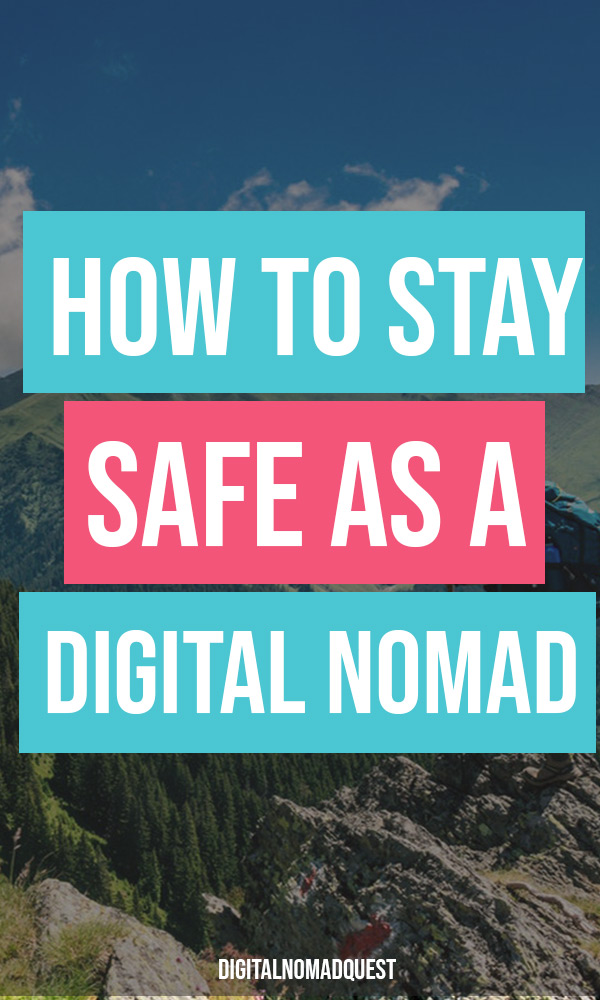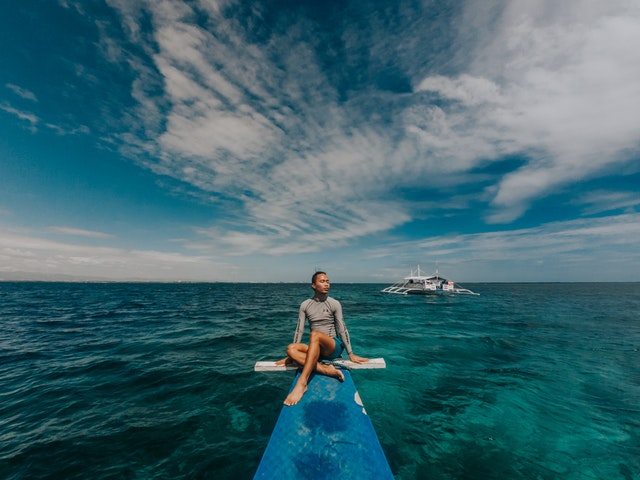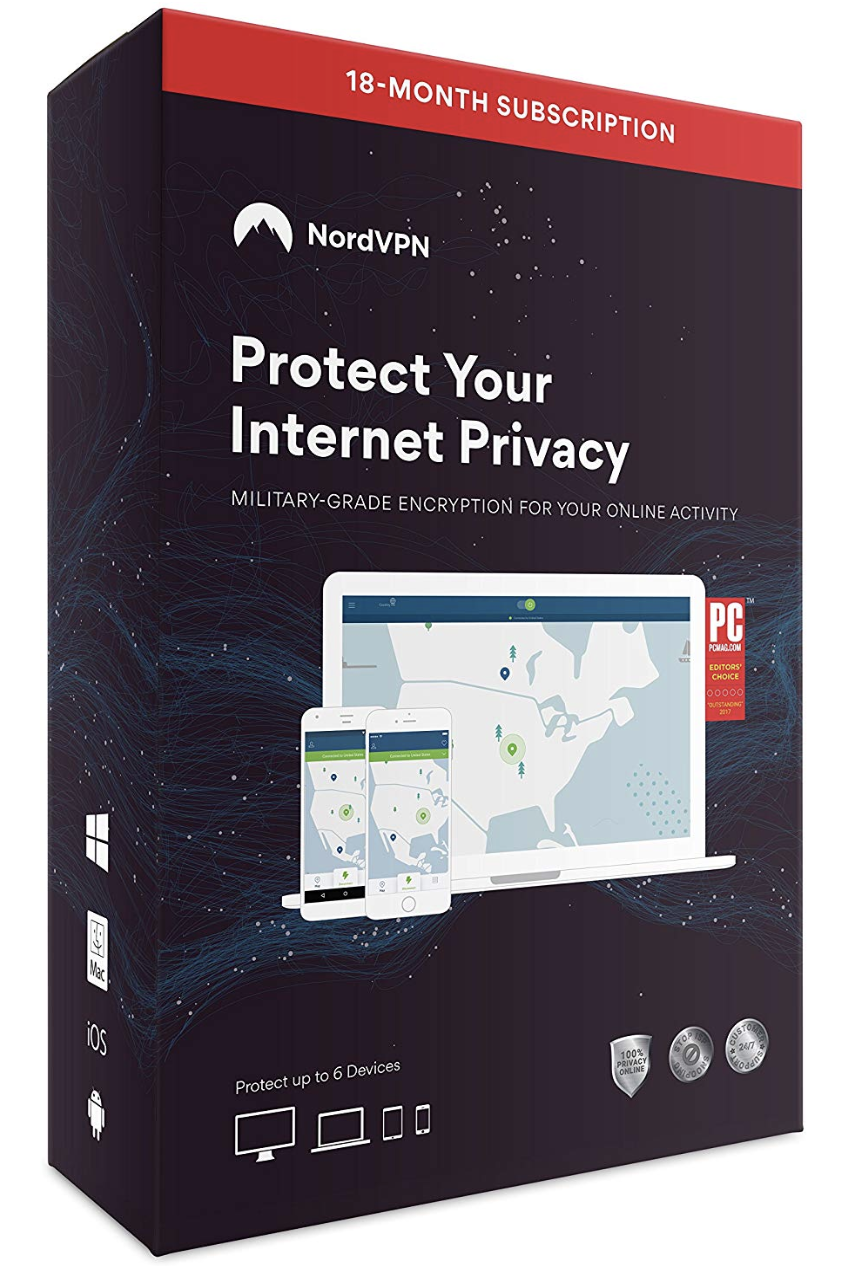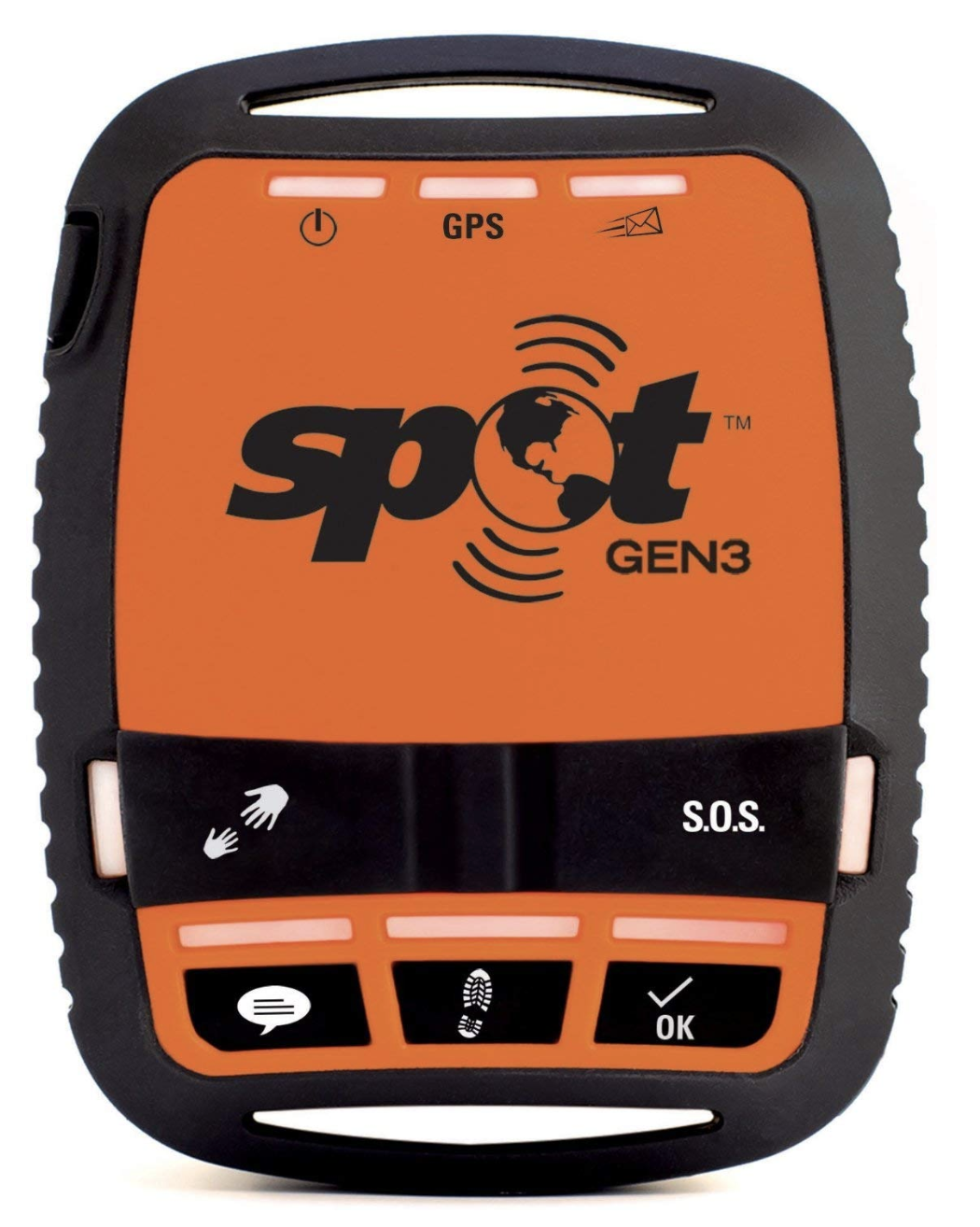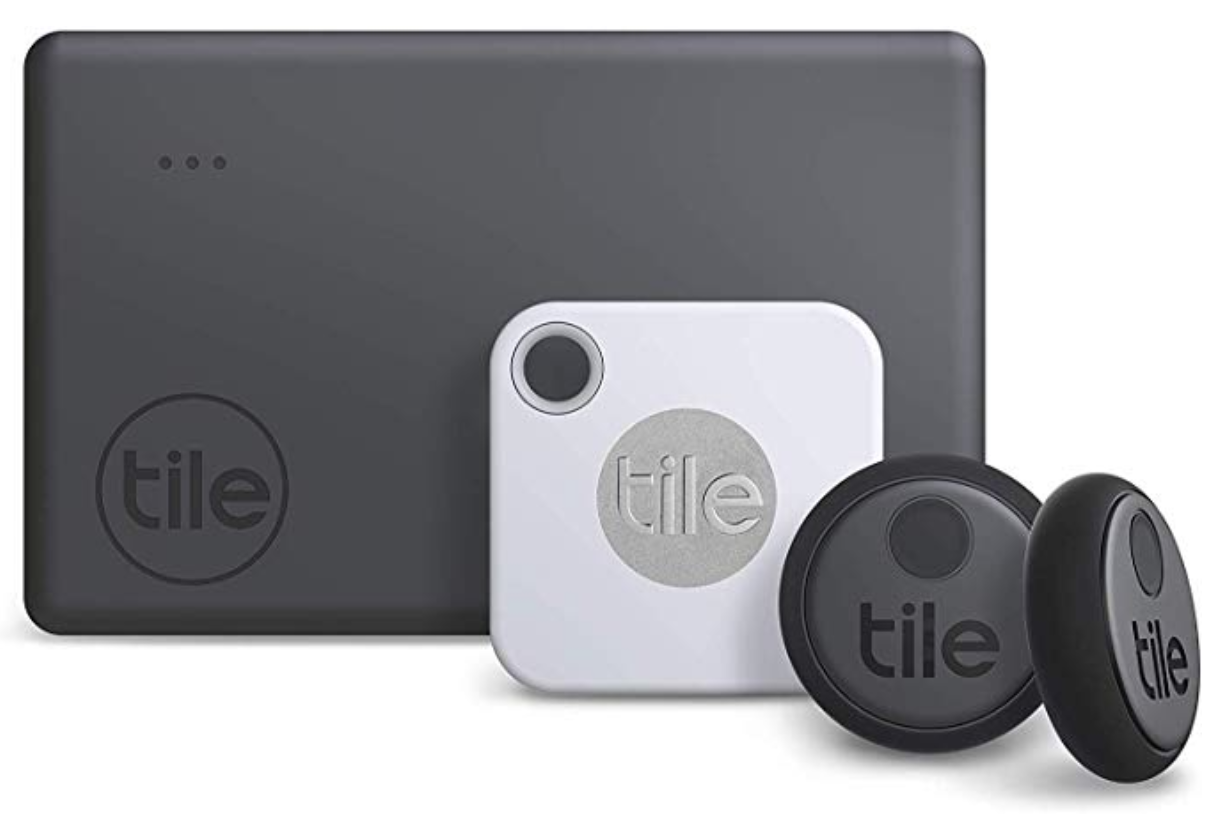The old saying goes, “No risk, no reward.” Being a digital nomad you’re obviously already ascribed to this philosophy and are hopefully reaping the rewards that this lifestyle offers. You’re traveling. You’re meeting new people. You’re immersing yourself in other cultures and learning languages you didn’t even know existed. What were the risks again? It’s easy to overlook the minute details of safety when you’re in the midst of how grandiose it all is. In this post we want to discuss how to stay safe as a digital nomad so that you have the foundations before you go abroad.
Safety cannot be something you forget. There is always a chance, regardless of how rare, that the remote worker can fall victim to bad circumstances. Even Ernest Hemingway, one of the most famous not-digital nomads, fell victim to theft. His first wife attempted to surprise him by bringing his work along with her on a trip. The briefcase she carried, which contained the originals and copies of his literary genius, was stolen from her at a train station. Preventing these writings ever to grace the literary world. If only he’d purchased something to back up his files on the cloud, maybe we’d have even more great pieces of his to read. Alas, he didn’t. Think of it this way. You have two responsibilities. The first is to ensure that you are safe. There’s no way for you to appreciate the liberation that you’ve achieved if you are not kept healthy and alive. The second is to ensure that your work is safe. There is no way for you to appreciate the liberation you’ve achieved if you can’t pay to do so. Now, what are the best ways for you to fulfill your two obligations?
How To Stay Safe As A Digital Nomad
Data Back-Up
You need to back up your data. Don’t be like Ernest Hemingway! Granted, he didn’t have the option to back up his data digitally but imagine the pain he felt from losing his work, and at the time he was only writing for him. There is a strong chance that you, a digital nomad, most likely will have clients or team members that you’re working with. Why risk losing all of the information? It’s not hard, and if you have a situation where you need to use a different computer you’ll have all the information right at your fingertips.
You have options. If you’re unsure about what you need or how much of it you’ll need, start with the most basic, like Google Drive. You can load most of your documents, spreadsheets, and images. Google photos also offers a great automatic backup for your pictures so that you can save space on your cellphone and computer. If you have more than what Google Drive can handle, there are other choices. USD sticks, online service providers, and external hard drives are all excellent choices. Whatever route you choose, use it regularly.
VPN
A free wifi connection is not a safe connection. Even if you don’t save your passwords or your credit card numbers online, you do, in fact, work and connect abroad from your computer using the internet. A VPN, or virtual private network, enables you to work remotely safely by extending a private network across a public network. This not only protects you but the people who have entrusted you to have their data as well. Not only that, it enables you to use websites that are typically blocked due to government censorship. Depending on where you are, that may come in handy. Virtual Private Networks come in different packages. You’ll be able to even find an app on your phone that provides this service. Or, if you need a recommendation for how to best protect yourself try Nord VPN or PureVPN.
Mobile Hotspot
The internet is vital for your business and your travel. If you’re like many of the millions of people around the globe, your computer has some of your most critical information stored on it. The next step up from having a VPN is getting a mobile hotspot. This has multiple benefits:
- You’ll never be without Wifi.
- You’ll know what kind of Wifi connection to anticipate no matter where you go.
- Your connection is safe.
When I first started looking for a mobile hotspot, I had a lot of trouble finding one that wasn’t really expensive or that needed a land cable. I also often felt like I didn’t need a mobile hotspot all of the time because I had the VPN and access to Wifi. I’ve recently learned about a new mobile hotspot provider called Skyroam. What I like about it the most is that you can pay for it on an as-needed basis. If you’re in a place that is extremely remote, naturally, you’ll want to buy a long term plan. If, for some reason, you find yourself without wifi for a day, you can just buy a one day plan. It is everything a digital nomad needs to ensure a successful business day.
Travel Insurance
You’re probably familiar with the potential cons of purchasing travel insurance. What if you never use it and it is a waste of money? What if filing a claim is more trouble than it’s worth? From a basic needs standpoint, if you’re traveling with anything that you deem of value, such as your laptop, travel insurance is worth the purchase. The daily rates are incredibly inexpensive. If you need more of a numbers argument for why you should purchase travel insurance, consider this: In October 2019, there were over half a million flights delayed globally. Not to mention, there were over 30,000 flights canceled. There is a strong likelihood that you’ll experience the inconveniences of travel and their monetary consequences at some point. There is also the chance that you’ll get sick, have luggage missing, or just need advice for a location you’re going too. Why not be financially protected from circumstances beyond your control?
Backpack
Protecting your gear is just as vital as protecting your information. Things to take into consideration:
- Where are you sleeping?
- Is the answer a hostel, a stranger’s couch, or any other setting where you’ll be in the company of people you aren’t well acquainted with? Having a bag that you can lock, has hidden pockets, and that is not easily slashed to access would be advisable. I know you want to think that all fellow travelers and travel supporters are decent people, but sometimes they’re not.
- Where are you working?
- Is the answer to a cafe or public space? Allow me to reiterate the importance of having a bag that cannot be cut with a knife or pair of scissors easily. You also may want the bag to have a lock so that you can anchor it to the table where you’re working.
- How is the weather?
- Is it raining or is there a chance of rain? Your bag is going to be carrying your personal items in addition to your working ones, and you’ll want to protect them from the elements. Having a bag that is weatherproof is ideal, particularly if you plan on changing climates throughout the year.
- How much are you moving?
- Schlepping around a heavy bag all day does nothing helpful for the ease of your travel, not to mention the alignment of your spine. However, the most durable bags often are heavy. Be sure to read the reviews and the product details before investing in something that could an extra 10 pounds to your existing 20-pound load. Whatever bag you pick, make sure you know how to wear it correctly and that it is designed for your body type. I know it’s mind-blowing to think that bags are designed like apparel, but they are, and it could be a determining factor in your comfort level while you travel. The last thing you want is to have to use that travel insurance to find the local chiropractor because you picked the wrong bag.
GPS and Tracking
A common thought you may have is, “Where am I?” Ideally, you’re having this thought in broad daylight with plenty of time to navigate yourself to where you’re going and with enough language knowledge that you’re capable of asking for help. Realistically, this is not always the case. Sometimes we have to take the late-night flight. Sometimes we lose track of time in addition to losing track of our whereabouts. It’s part of the adventure! We’re explorers; it’s what we do. That’s why we may need a GPS. Naturally, there’s one on your phone. Google Maps, for most phones, is available without wifi or data connection. If you’re into hiking and discovering remote places, you may want to look into a more advanced navigation tool. Keep in mind that many countries have restrictions on what can be used because of data protection laws. One that is highly recommended is the Spot Gen 3.
Just like you, your things can also go missing. Using a tracking device for your most precious items is ideal for making sure that you have your things together. We all know a late night out can lead to a morning of disarray. Get it together! Or, worst-case scenario, you didn’t lock your bag up at the cafe you were working at, and someone swiped it. Have peace of mind by putting a tracking device in your bag or on your keyring like a Tile.
Credit Card and Passport Protector
To travel you have to have your passport and, it is very likely, that you’ll be carrying a credit card with you for at least your online purchases. These two crucial components to your travel and business contain something called RFID, or radio-frequency identification. The barcodes on these items contain all of your information. These barcodes, gone unprotected, can have your information stolen without you even being aware of it. Many credit cards have chips that protect it from this, but better safe than sorry. RDIF theft happens without physical contact. Thieves have their option of devices that they can use just walking past you, never having to actually touch your card, purse, or wallet. The solution? RFID protection cases like the Alpine Rivers protection wallet found here. Alpine Rivers provides a variety of protection sleeves so even if you’re traveling in a group, you’ll all be protected.
Health and Wellness
Naturally, keeping your gear safe is incredibly important. What is even more important is keeping yourself safe. I’m not just talking about looking before you cross the road or being careful about who you ask to join you for dinner. Safety also includes making sure that your health is intact. You purchased the travel insurance but, do you really want to use it because you had to go to the infirmary? Don’t be negligent of your body.
- Pollution Mask If you are visiting a country with a high pollution rate, or are a person who is prone to getting sick, or if you find yourself on flights frequently, you may want to consider wearing a pollution mask. Before leaving for Bangkok a year ago, I spoke with a doctor about whether she recommended them or not. She said, I don’t know if they work but I know that the people that wear them don’t come to the clinic. Do your research, and, if you see a lot of locals wearing them, maybe you should consider it too.
- Life Straw Be mindful of the water quality for where you’re going. To be safe, a Life Straw is highly recommended. They are lightweight; they filter up to 1000 liters of contaminated water without iodine, chlorine, or other chemicals. They do not require batteries and have no moving parts. They remove a minimum of 99.9999% of waterborne bacteria, 99.9% of waterborne protozoan parasites, and filters to 0.2 microns, and they surpass the EPA filter standards.
- Sun Protection It’s not just for the class of ’99 (Baz Lurhman reference for those of you who don’t remember that epoch song). Protect your skin. It is your largest organ and, there would be no joy in traveling if you happen to get a melanoma along the way because you refused an SPF.
